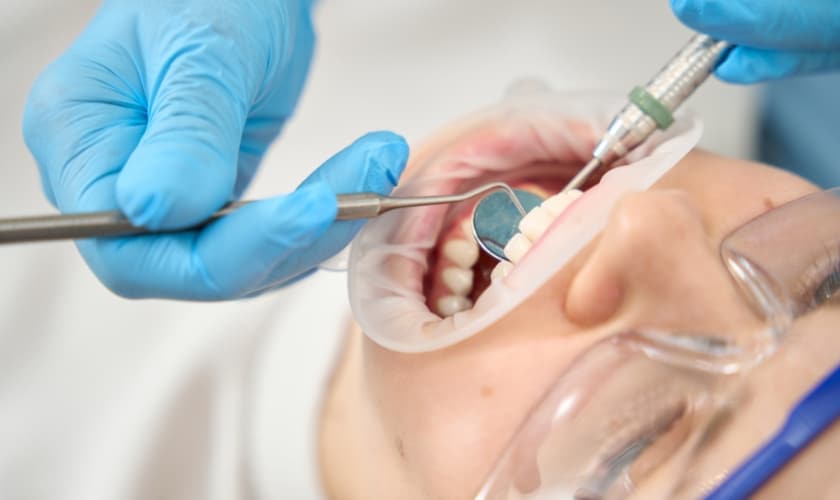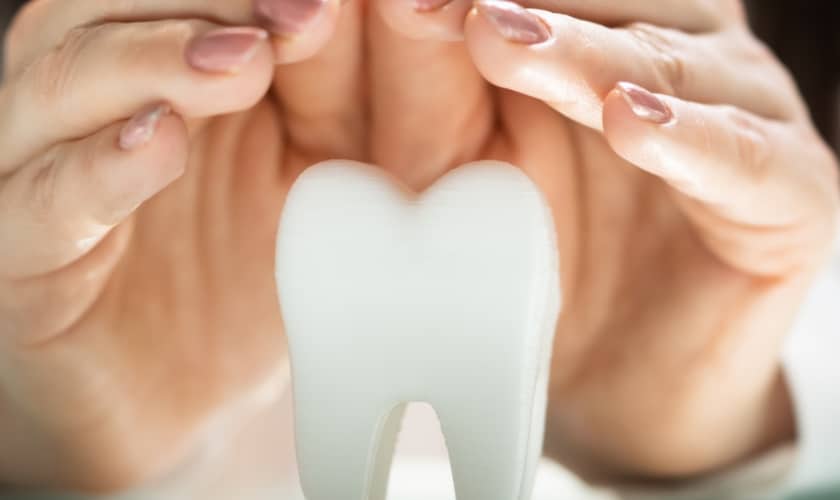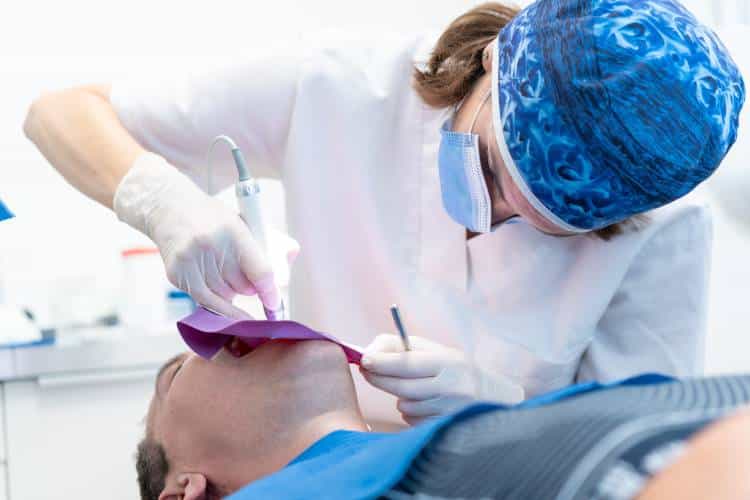A throbbing toothache can send shivers down anyone’s spine. But when the culprit is a cracked tooth, the pain can be particularly concerning. Cracked teeth occur when a fracture develops in the tooth’s enamel or dentin, often due to biting down on hard objects, chewing unevenly, or trauma. While the pain can be intense, there are steps you can take to find relief and protect your smile. This blog explains all the necessary actions you should take to address a cracked tooth effectively.
Signs of a Cracked Tooth
The definitive indicator of a fractured tooth is a sharp, throbbing pain that may worsen when you press down on the teeth, chew, or bite down. However, not all cracked teeth cause immediate pain. Here are some other signs to look for:
- Sensitivity to hot or cold: Cracked teeth can become sensitive to extreme temperatures.
- Sharp edges on the tooth: You may feel a sharp edge on the tooth with your tongue.
- Visible crack: In some cases, you might even see a visible crack in the tooth’s surface.
Seeking Relief: First Steps at Home
If you suspect a split or fractured tooth is causing your pain, here are some initial steps you can take at home:
- Over-the-counter pain relief: Until you can visit a dentist, medications like acetaminophen or ibuprofen can help control the discomfort.
- Cold compress: Apply a cold compress to the outside of your cheek near the affected tooth to reduce inflammation and alleviate discomfort.
- Stick to soft foods: Avoid hard, chewy, or sticky foods that can put additional stress on the tooth that’s cracked.
- Rinse with warm salt water: Mixing a teaspoon of salt with warm water can help reduce inflammation and soothe a throbbing sensation.
Don’t Delay! Seeing a Dentist is a Key
While these at-home remedies may offer temporary relief, reaching out to professional dental care is crucial for addressing this dental pain. Your dentist will be able to:
- Perform a thorough examination: During the examination, your dentist will use X-rays to assess the severity of the crack and the extent of damage to the tooth.
- Identify most effective treatment plan: According to how serious the crack is and its location, treatment options may vary.
- Potential treatment options:
- Dental bonding: For minor cracks, bonding involves applying a tooth-colored resin to repair the crack and restore the tooth’s appearance.
- Dental crown: For more extensive cracks, a dental crown (cap) may be placed over the tooth to protect it and restore its functionality.
- Root canal: If the split gets to the pulp (inner chamber) of the tooth, To save the tooth and remove the affected tissue, a root canal can be required.
- Extraction: When a tooth is severely damaged and cannot be saved, extraction might be the only option.
Preventing Cracked Teeth: A Proactive Approach
While cracked teeth can happen occasionally, there are actions you can take to reduce the risk:
- Avoid chewing hard objects: Don’t use your teeth to crack nuts, open bottles, or chew on ice.
- Use a mouthguard: If you play sports that involve contact or activities that could cause facial trauma, wear a mouthguard to protect your teeth.
- Practice healthy dental hygiene by consistently brushing and flossing. Removes plaque and bacteria, keeping your teeth strong and healthy.
- Regular dental checkups: Regular dental visits let your dentist recognize possible issues early on and take appropriate action, including small cracks that may become more serious.
Living With a Cracked Tooth: What To Expect?
The recovery time and long-term prognosis for this issue depend on the severity of the crack and the treatment received. Typically, procedures like bonding or a crown placement require minimal downtime and allow you to resume normal activities quickly. However, more extensive procedures like root canals may require a longer recovery period.
Following your dentist’s instructions after treatment is crucial for the long-term success of the repair. This may involve avoiding certain foods, practicing good oral hygiene, and scheduling follow-up appointments to monitor the tooth’s health.
A Cracked Smile Doesn’t Have to Last
A tooth crack may be the cause of pain and discomfort, but it doesn’t have to derail your smile. By recognizing the signs, seeking professional care quickly, and following preventive measures, you can effectively address the crack, manage the pain, and restore a healthy, functional smile. Remember, prompt action and a proactive approach to oral health can minimize the impact of a cracked tooth and ensure a beautiful, pain-free smile for years to come. Schedule an appointment with your trusted dentist today and start down the path to a more contented, healthier you!
Frequently Asked Questions
Can a cracked tooth heal on its own?
Unfortunately, cracked teeth will not heal on their own. The crack exposes the tooth’s internal layers to bacteria, which might result in an infection and further damage. Early intervention by a dentist is crucial to prevent further complications.
What will happen if I leave a cracked tooth untreated?
Untreated dental fractures can result in several serious issues. The crack can worsen over time, allowing bacteria to penetrate and cause an infection in the tooth’s pulp or surrounding gums. This may cause excruciating pain, edema, and potentially an abscess.
Furthermore, an untreated crack may compromise the tooth’s structure, increasing the risk of further damage or even tooth loss. Timely intervention is essential to avert these issues and sustain the health and functionality of the tooth.
How much does it cost to fix a cracked tooth?
The price of fixing a fractured tooth is determined by the severity of the crack and the treatment required. Generally speaking, bonding is the least expensive choice, however, crowns and root canals are generally more expensive. A lot of dental insurance policies only pay a percentage of the treating cracked teeth.
What can I eat with a cracked tooth?
After its treatment, your dentist might advise staying away from soft foods after more involved operations like crowns or root canals for a few days to allow the area to heal properly. Once healed, you may be able to resume your regular diet, but it’s still best to avoid chewing on hard objects to prevent further damage.





